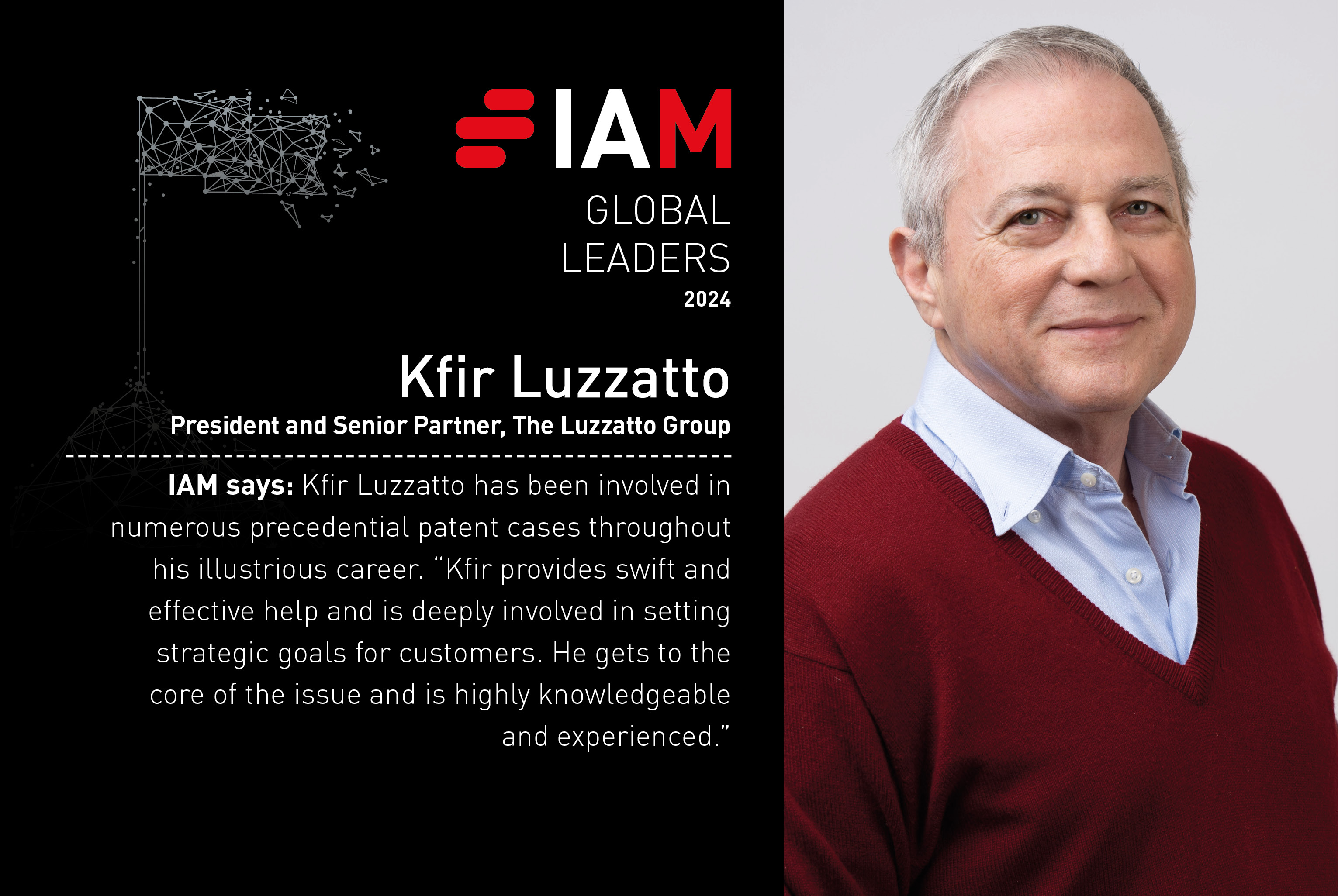Kfir Luzzatto
 You have four decades of IP experience and have been involved in numerous precedential patent cases throughout your career. What keeps you in the game?
You have four decades of IP experience and have been involved in numerous precedential patent cases throughout your career. What keeps you in the game?
First of all, I love my job. It is a demanding profession and unless you love it, you cannot continue doing it for long. A substantial part of my work involves developing IP strategies for my clients, for which experience is one of the best tools. One of the reasons I love the profession is because it is constantly developing and gives me much satisfaction. Another reason is that we already have the fifth generation working at the firm and it is a joy to see them develop and take us to another more modern level.
Which recent decisions or legislative developments have had the biggest impact on IP strategy in Israel in the past few years?
Israel is constantly developing as far as intellectual property is concerned because of its active technological landscape, and rulings and legislation evolve to serve its needs. It would be hard to pinpoint a single decision or development when so much is working together to keep the thriving IP environment at its best.
What are your top tips for keeping patent litigation costs down in the current economic climate, especially as more people are taking cases to court?
The three most crucial things litigants should do before embarking on litigation are preparation, preparation and preparation. When someone rushes into litigation without spending enough time and effort on conducting an in-depth analysis and identifying critical steps to be taken before and during the proceedings, this always results in added costs that could have been avoided if proper preparation had been done. Even when the need to initiate litigation becomes evident only shortly before the deadline for doing so, ongoing work on a variety of aspects can be continued, allowing litigants to identify potential pitfalls and shortcuts.
What pitfalls should foreign rights holders be aware of when seeking to enforce their rights in Israel?
First of all, not all courts were created equal. Israel does not have specialised IP courts and therefore cases are brought to the relevant court – in most cases a district court. In some courts, you will find judges with much greater IP law experience than in others. Unfortunately, plaintiffs have to select a court that has jurisdiction, which often does not allow any flexibility. Once a complaint has been filed, its timeline depends very much on the judge’s workload, and activities that should be undertaken must take that into account. Accordingly, before embarking on a court case, all possible scenarios should be factored in and alternatives should be examined.
Very often, a judge will suggest that the parties refer the case to arbitration. This is more likely if the judge has no IP experience or if the subject matter is technically complex. The arbitration process poses dangers in many cases and has not been proven to be a good choice in some instances. Therefore, before agreeing to move to arbitration, the matter – particularly the identity of the available arbitrator – should be carefully considered.
What has been your biggest professional challenge in the last 12 months, and how did you overcome it?
It happens only once in a blue moon that the conclusion from a due diligence investigation is that everything is fine, the intellectual property is in good shape and the client should invest in the company. It is very rare to see a due diligence report of this kind since the attorney performing it always prefers to release an ambiguous report that does not include a strong recommendation to invest, particularly if the investment is a large one. In the entirety of my career, I cannot remember receiving a clean bill of health from someone doing a due diligence analysis on one of my clients. However, with experience also comes the self-assurance to do the unusual, and in this case, my challenge was not related to the due diligence itself but rather convincing my client of the ‘nothing to see here’ conclusion of my investigation. It took substantial time and required going deep into the analysis with the client to give it the confidence it needed to go ahead with the investment.
Kfir Luzzatto
President and Senior Partner
[email protected]
Kfir Luzzato’s multi-disciplinary experience ranges from pharmaceuticals and life sciences to AI, software, defence and more. His extensive litigation experience allows him to have a unique perspective on the development of strategies for strong IP protection for start-ups and multinational companies alike. Dr Luzzato holds a PhD in chemical engineering and is known for his litigation work on important products such as Prozac, Viagra and in the defence and software fields.